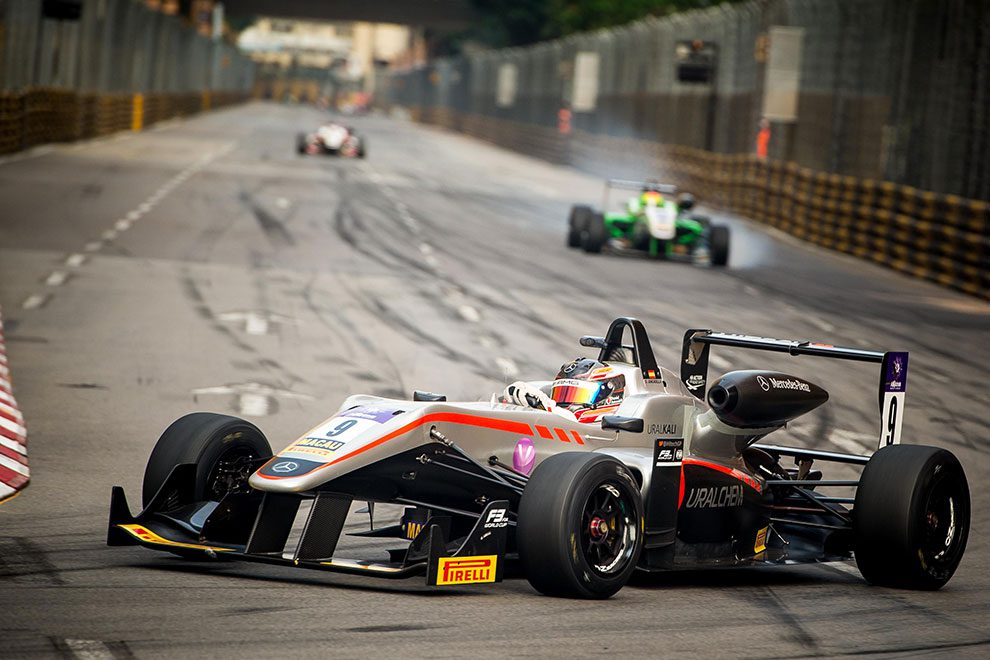Macao’s biggest annual sporting event, the Macau Grand Prix, each year brings to the city thousands of race fans. The uniqueness of its street circuit allied with car and motorbike races sanctioned by international motorsport bodies, gives the event its special flavour. A new academic paper warns however about the need to upgrade the grand prix meeting format to cope with increased competition from other, newer, motorsport events around the region.
The paper was written by 2 researchers from IFT – Mr. Ubaldino Sequeira Couto and Ms. Wendy Tang Sio Lai – in partnership with Mr. Paul Boyce from Bournemouth University in the United Kingdom. The research, “What makes a motorsports event enjoyable? The case of Macau Grand Prix”, was published earlier this year in the Journal of Convention and Event Tourism. The study aimed to identify the components that make the Macau Grand Prix enticing to spectators.
“Competition in the region appears to be fierce from more attractive motorsport events,” the researchers wrote. They gave the example of several Formula 1 races now taking place in Asia, including in Singapore, where “the circuit is adapted from city streets like in Macao but the… races are held at night, thus enhancing the event aesthetic and ambient elements by making the event unique.”
The researchers noted other Asian contenders developing new signature motorsport events included the Hong Kong SAR, which last year hosted for the first time a Formula E motor race before an estimated crowd of 30,000 people. Formula E is the world’s first fully-electric racing series using cars that are fully electric, and is sanctioned by the International Automobile Federation, also known as FIA.
“The mundane marketing, absence of strategic involvement of local and regional partners as well as lack of new concepts in how the Macau Grand Prix is staged each year will sooner or later jeopardise its survival as a prestigious and historical event in the region,” the researchers said.
They added: “This is… [of] imminent [importance] as motorsport events seem to be increasingly attracting a female following and the prime tourist markets in Macao appear to be changing… [in] tastes and preferences all the time.”
“The Government, as the event organiser, must have a full grasp of these changes.”
The researchers highlighted that “the support from the local people and the positive contribution of the event to Macao’s destination image encourage innovation” regarding the way the Macau Grand Prix is set up. They noted that the support enjoyed by the event locally allowed stakeholders “to focus on the motorsport event product mix, as opposed to managing other issues, such as noise abatement or conflicts with the local community.”
Need for speed
In order to identify the components that make the Macau Grand Prix an enjoyable event, the researchers interviewed a total of 395 people during the 2010 edition. The sample consisted of people that reported attending the race meeting in person as spectators. Approximately 47.6 percent of the respondents were from Macao, the rest being visitors.
The research identified the event amenities, aesthetics, ambience, and issues related with ticketing as the major components having an affect on levels of spectator enjoyment regarding the Macau Grand Prix. “These items are largely consistent with other studies on spectator sport event quality,” the researchers said.
The amenities component included factors such as availability of toilet facilities, availability of food and drink, local transportation, environmental sustainability of the event and availability of souvenirs, the study stated. Event aesthetics were related to the excitement offered by the races, the presence of famous drivers on the track and the closeness of the spectators’ viewing positions to the races, the research added.
Event ambience included factors such as weather, noise, presence of large crowds, and safety and security, according to the findings. Ticketing issues included ticket availability and pricing.
The results showed no significant differences between Macao residents and tourists regarding factors influencing enjoyment of the grand prix meeting. “Both groups demonstrated a similar pattern of responses to[ward] these performance factors,” the researchers stated.
They added that “event environmental features” such as “event aesthetics and ambience”, were considered more important than practical factors such as “ticket costs and support facilities”. The findings indicated Macau Grand Prix meeting attendees “gave greater consideration to the intangible aspects of the ‘event product’ while acknowledging also the importance of the tangibles” of the product mix, the researchers stated.
More info
Ms. Wendy Tang Sio Lai is a Research Assistant at the IFT Tourism Research Centre. She provides support to projects undertaken by the centre. Ms. Tang holds a master’s degree in social sciences with a focus in economics, which was awarded by the University of Macau.
Mr. Paul Boyce is a Lecturer in sports business and administration at Bournemouth University in the United Kingdom. He specialises in sport management and finance. Mr. Boyce’s research interests include the business of motorsport and technology-enhanced learning.









